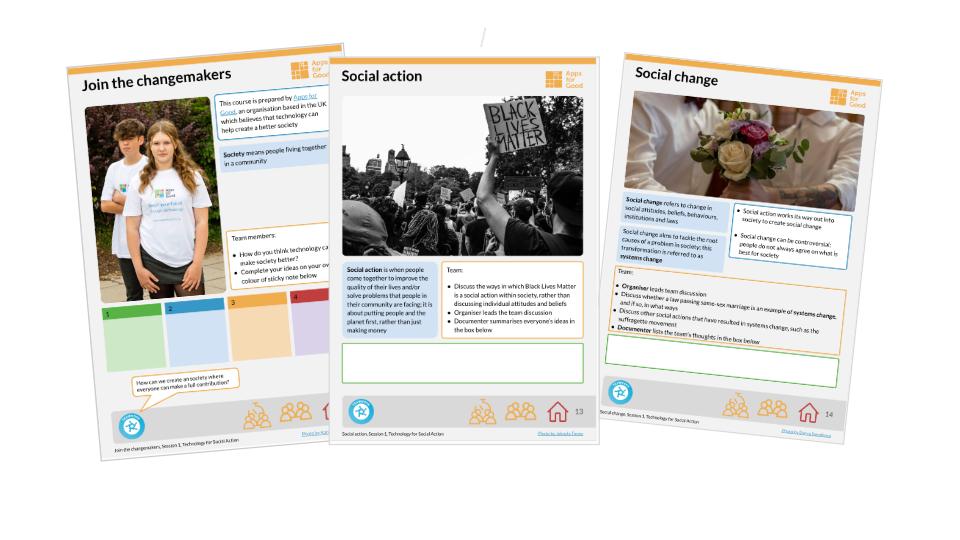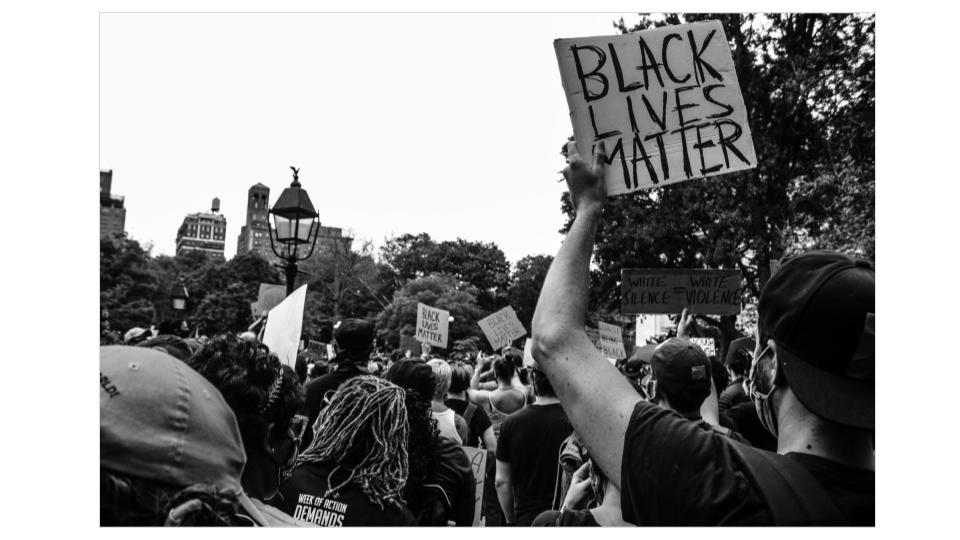Why learn about social good?

At Apps for Good we believe in technological justice, where tech innovation is designed to benefit society and/or the environment. We have embedded our approach in our new course, App for Social Action, where we develop students’ understanding of social action and social change.
Apps are great tools for being innovative and doing good things that impact society, because they can reach a lot of people. We want young people to understand how they could help society by harnessing technology. App for Social Action aims to stimulate young people's ambition to create social change by creating an app for a community they care about.
As well as developing their understanding of computing and digital literacy, students also develop an understanding of the theme of social good. Alongside classroom posters on computing, digital literacy and App Lab (the online programming environment we use in App for Social Action), we also provide posters on social action keywords and terms. We are very mindful to limit the cognitive load for students – it’s a fine balance between explaining the meaning behind a new theme and communicating its relevance to young people whilst providing a nimble, informative and fun course for both teachers and students. Our resources are mostly delivered by teachers of Computing within the Computer Science timetable. The resources, therefore, need to offer a lens for teachers who are usually delivering thematic content outside of their subject specialism.
 Some slides from the eWorkbook on social action and social change from the App for Social Action course
Some slides from the eWorkbook on social action and social change from the App for Social Action course
App for Social Action is the successor of our long-standing App Dev course - with seven sessions as opposed to the previous twelve. With less session time, we share the essence of social action and social change and leave space to encourage student teams to converse and share their ideas with each other.
In Session 1 we explain that apps are great tools for being innovative and doing good things that impact society, because they can reach a lot of people. We hope to motivate students with the idea that technology can help ensure that students can live in the kind of society they will want to be part of.
During the course, students learn about the power of computing, and specifically programming, to effect social change. We want them to complete the course with the knowledge that computing skills can be put to social good.
Students are given the following definition of social action:
When people come together to improve the quality of their lives and/or solve problems that people are facing in their community; it is about putting people and the planet first, rather than just making money.
We stipulate how social action often starts with an individual or small group taking a simple action aimed at increasing awareness and understanding. From there, the action can also become a platform to support other people in being active citizens in relation to a social action. People can get involved in local, national and/or global issues as one or all of the following: observers, contributors, collaborators and/or leaders.
 Photo credit: Jakayla Toney
Photo credit: Jakayla Toney
Students then discuss the ways in which Black Lives Matter is a social action. We define Black Lives Matter as a movement that highlights the racism, discrimination and racial inequality experienced by black people.
Social action works its way out into society to create social change. Young people need to understand that their voice is important to society, that they have the power to lever change, and that they need to be proactive rather than reactive to things they they believe need to change. By the end of the course we hope to have demonstrated how technology can be used for good.
People do not always agree on what is best for society. We explain that social change can be controversial and differing opinions may come up during class discussions.
We explain that social change refers to change in social attitudes, beliefs, behaviours, institutions and laws. Ideally, social change tackles the root causes of a problem in society; such a transformation is referred to as systems change.
We remind students that same-sex marriage is the marriage of two people of the same sex or gender. Teams then discuss whether a law passing same-sex marriage is an example of systems change, and if so, in what ways? They discuss other social actions that have resulted in systems change.
Teachers are provided with some references for discussions on social change. We are interested in including further examples of systems change that chime with young people:
- The Black Lives Matter movement, which has raised an international public's awareness of inequality, often demonstrated through prejudice, as well as a lack of diversity; the movement has informed new attitudes and approaches, as well as policies
- The Marriage (Same Sex Couples) Act in 2013, enabled same-sex couples to marry in the UK
- Fairtrade, established by the Fairtrade Foundation, which is a system of certification that sets standards in the production of goods, as well as working towards safer working conditions and fairer pay for farmers
- The suffragette movement, which successfully campaigned for women to be given the right to vote in public elections
Our Social Action Apps film (4:41 minutes) brings together four companies and organisations focused on social good:
- Airly who monitor air pollution and provide data
- Be My Eyes who connect people needing sighted support with volunteers through live video
- Fix My Street who map and report street problems to the councils responsible for fixing them
- Sociability who help disabled people find accessible venues
Through our resources we aim to give teachers the confidence to deliver a course with a social good theme where students ask themselves, “What kind of society do I want to be part of?” We give young people the computing skills to help realise their ambitions. App for Social Action is an empowering course which inspires positivity.
We are very grateful to the following experts for their time and guidance in helping us refine our communication of social good in the App for Social Action course: Maiko Schaffrath, Randeep Sidhu, Natalie Tucker and Sutin Yang. The following organisations’ work was also instructive: Ada Lovelace Institute, mySociety, Social Change UK, Social Tech Trust, and Tech Nation.
Apps for Good is constantly striving to improve its courses. We always welcome feedback. Whether you have tips of your own to share, have spotted a mistake, want to let us know that you enjoyed the resources or would like to share any other thoughts, please email us at education@appsforgood.org.
Authored by Dr Emma Posey, Senior Learning Manager, Apps for Good.